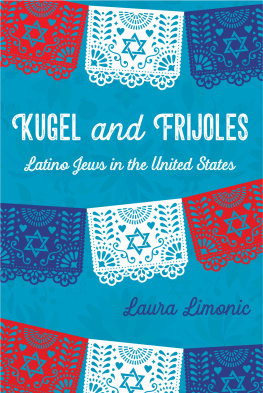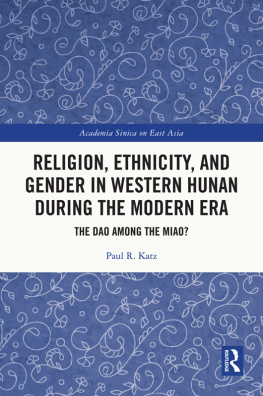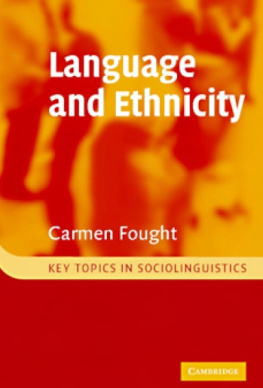Thank you for buying this ebook, published by NYU Press.
Sign up for our e-newsletters to receive information about forthcoming books, special discounts, and more!
Sign Up!
About NYU Press
A publisher of original scholarship since its founding in 1916, New York University Press Produces more than 100 new books each year, with a backlist of 3,000 titles in print. Working across the humanities and social sciences, NYU Press has award-winning lists in sociology, law, cultural and American studies, religion, American history, anthropology, politics, criminology, media and communication, literary studies, and psychology.
Preserving Ethnicity through Religion in America
NEW YORK UNIVERSITY PRESS
New York and London
www.nyupress.org
2010 by New York University
All rights reserved
Library of Congress Cataloging-in-Publication Data
Min, Pyong Gap, 1942
Preserving ethnicity through religion in America : Korean Protestants and Indian Hindus across generations / Pyong Gap Min.
p. cm.
Includes bibliographical references and index.
ISBN-13: 9780814795859 (cl : alk. paper)
ISBN-10: 0814795854 (cl : alk. paper)
ISBN-13: 9780814795866 (pbk. : alk. paper)
ISBN-10: 0814795862 (pbk. : alk. paper)
1. EthnicityReligious aspects. 2. EthnicityUnited States.
3. Identification (Religion) 4. ImmigrantsUnited States
Religious life. 5. Emigration and immigrationReligious aspects.
6. MinoritiesReligious life. 7. MinoritiesUnited States. I. Title.
BL65.E75M56 2010
200.8900973dc22 2009042909
New York University Press books are printed on acid-free paper, and their binding materials are chosen for strength and durability. We strive to use environmentally responsible suppliers and materials to the greatest extent possible in publishing our books.
Manufactured in the United States of America
c 10 9 8 7 6 5 4 3 2 1
p 10 9 8 7 6 5 4 3 2 1
Acknowledgments
THIS IS PROBABLY the most difficult book project I have ever undertaken, and the ten years that have gone into the effort indicate the great difficulty. It would have been absolutely impossible for me to finish it without the support, encouragement, and assistance that I have received from many organizations and people. I cannot possibly list all those who have helped me over a long period of time. But I can express something of the special debt I owe to the following people and organizations.
Starting with organizations, a fellowship from the Social Science Research Council and a grant from the Center for Immigration, Ethnicity, and Citizenship at New School University allowed me to take a sabbatical leave to collect personal interview data from fifty-nine Korean Protestant and sixty-five Indian Hindu immigrants. Grants from the PSC-CUNY, the Asian and Asian American Research Institute, and a FIPSE Faculty/Mentor project enabled me to hire research assistants to interview Korean Protestant immigrants and second-generation Korean Protestants and Indian Hindus. A grant from the PSC-CUNY also enabled me to visit Seoul to collect statistics on Protestant churches in Korea. The Queens College Presidential in-Residence Release-Time Award gave me release time to write some of the book chapters. A grant from the National Science Foundation allowed me to collect survey data on Korean and Indian immigrants pre- and postmigrant religious affiliations and frequency of participation in religious institutions. Finally, a visiting scholar fellowship from Russell Sage Foundation gave me more time to revise some of the book chapters and update the literature.
Several graduate students conducted personal interviews with Korean Protestant and Indian Hindu immigrants and second-generation members, which were used as key data sources for this book. Hara Behk, Ho Su Kim, Kathy Kim, Young Oak Kim, and Ju Mun Oh interviewed the Korean informants, and Aarti Bhanot, Vasudha Gandhi, Krittika Ghosh, and Suman Saran interviewed the Indian informants. Another Korean interviewer and two Indian interviewers, as well as the just-named interviewers, played an important role in collecting data central to this book. Three Queens College Korean students, He Huang, Sang Ho Kim, and Young Oak Kim, helped me analyze the survey data and create the maps used in . Dae Young Kim generously allowed me to use his dissertation data regarding religious affiliation and participation in religious institutions of 1.5- and second-generation Korean Americans.
I owe special thanks to Dr. Uma Mysorekar, president of the Hindu Temple Society of North America, and Padmanabhan Ganapathy, its public relations officer. They spent a great deal of time introducing the temples various activities and responding to my repeated questions. Their kindness and cooperation made my ethnographic research at the temple less difficult than I had expected. In particular, Padmanabhan Ganapathy served as my major source of information, not only about his temple, but also about Hindu religious practices in general. I also owe a debt of gratitude to Rev. Jae Hong Han, senior pastor of the Shin Kwang Church of New York, for his exceptional kindness in giving me information about his church history and activities and contacts with other church members. Four other members of the Shin Kwang Church of New YorkKeun Ok Kim, Ok Ja Park, Jae Hong Lim, and Esther Bong Ho Minhelped me with information about the churchs sociocultural activities and organizational structure.
Several Indian friends taught me how Hindus and other Indian religious groups practice their religions at religious organizations and at home, as well as telling me their religious history in India. Madhulika Khandelwal, Ravi Kurkarni, Vinit Parmar, Parmatma Saran, Rupam Saran, Harvachan Singh, and Christine Varghese deserve special mention. Parmatma Saran was most helpful to my book project in teaching and showing me religious rituals practiced at home and in reading the entire manuscript. Many Korean pastors and church membersWon Tae Cha, Seong Gyu Hwang, Do In Joung, Chung Kuk Kim, Hyung Hoon Kim, Incha Kim, Nam Gon Kim, and David M. Leealso gave me information about Korean church denominations and the historical development of Christianity in Korea.
Portions of appeared in a different form, written with Dae Young Kim, as The Intergenerational Transmission of Religion and Culture among Korean Protestant Immigrants, in Sociology of Religion 66:26382.
I gave talks based on data used in this book at New York University, New School University, Georgia State University, Smith College, Ithaca College, Queens College, the Graduate Center of CUNY, New York Theological Seminary, New Brunswick Theological Seminary, California State University at Los Angeles, Chonnam University, and Korea University. My conversations with many faculty members and students at these presentations sharpened my thoughts about major research issues in this book and improved its overall quality. I would like to express my sincere thanks to those who raised critical questions about my arguments and the overall direction of inquiry in my book.
Two anonymous reviewers of my book manuscript for New York University Press provided useful comments and constructive criticisms. Their challenging criticisms helped me strengthen some of my arguments, which I appreciate. Jennifer Hammer, an acquiring editor of New York University Press, accepted my book manuscript enthusiastically from the beginning and offered useful suggestions to make the book more accessible to lay readers. Her initial excitement about the book manuscript led me to believe that my ten years of hard work had been worthwhile. I would also like to express thanks to Despina Papazoglou Gimbel, the managing editor of NYU Press, for editing and processing the manuscript quickly.





